More than 25.500 workers participated in trainings on factory-internal grievance mechanisms
More than 25.500 workers participated in trainings on factory-internal grievance mechanisms
The projectwas launched in February 2021 with the aim to support suppliers in setting up or further develop the functioning of internal complaints structures, and to enable management and workers to solve incidents and grievances through dialogue (see Fairtrade´s news article at the beginning of the project). Grievances could concern aspects such as e.g. insecure work environment, forced over-hours, insufficient wages, harassment etc. Now, with the end of the project, complaints committees in 16 factories have been established and 303 master trainers have trained more than 25.500 fellow workers in 640 individual orientation sessions.
The Partnership for Sustainable Textiles (PST), the GIZ Programme TextILES, Fairtrade Germany and Partnership member companies Primark, Takko, HUGO BOSS, Kettelhack and tex idea jointly implemented the project. The project set-up was based on the experiences and practices of the Fairtrade Textile Programme, which has been successfully implemented since 2014 in India. The project started with a training seminar in Dubai at the end of March, where Fairtrade trainers from India shared their knowledge with the selected trainer team in Pakistan. Meanwhile the five PST members started conversations with their suppliers regarding their participation in the project.
Kick-off meetings in Punjab and Karachi
In total, the companies selected nine factories. Seven more where nominated by the GIZ Programme TextILES, which has long-standing experience in working with the Pakistani textile industry on sustainability topics. The participating suppliers were invited to a kick-off meeting either in Punjab or Karachi in order to learn about the project details, the legal situation in Pakistan as well as the basics of effective grievance mechanisms. These two joint meetings were well received by the stakeholders: „The Roll Out Plan has provided us with a clear picture of the project's execution. We now understand the definition of a grievance and when and how it should be heard, addressed, or resolved.” (Manager HR & Compliance, participating supplier)
Establishment of grievance committees in almost 16 factories
The local trainer team then carried out baseline and pre-assessments in all 16 factories in order to get an idea of their internal situation on grievance mechanisms. This data showed that a majority of the factories had not had any grievance committees in place before the start of the project. Similarly, in almost none of the factories the workers had been aware of these committees and its functions. Only in one single factory a grievance cases record had been available. This was followed by the set-up and training of grievance committees at all 16 factories. All of them received trainings in order to build capacity and awareness about their roles and responsibilities. The committees also received materials such as templates for filing complaints and for documentation both in local language and English.
In order to make sure that all workers were aware of the new structures, the team conducted various sessions to train 230 male and 73 female workers as master trainers. Unlike in other textile and garment manufacturing countries, the workforce in Pakistan is mostly male. The master trainers acquired knowledge on workers’ rights and the grievance procedure and developed roll out plans with the aim to forward their knowledge to the whole workforce. In a total of 640 individual orientation sessions, these 303 master trainers together passed on the information to more than 25.500 fellow workers – done on the factory floor / training center during or in-between shifts.
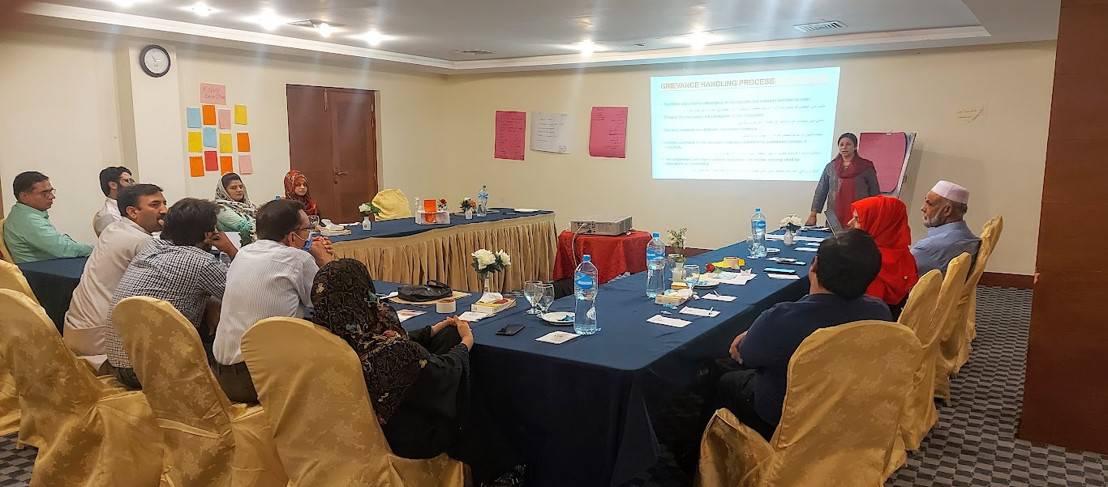
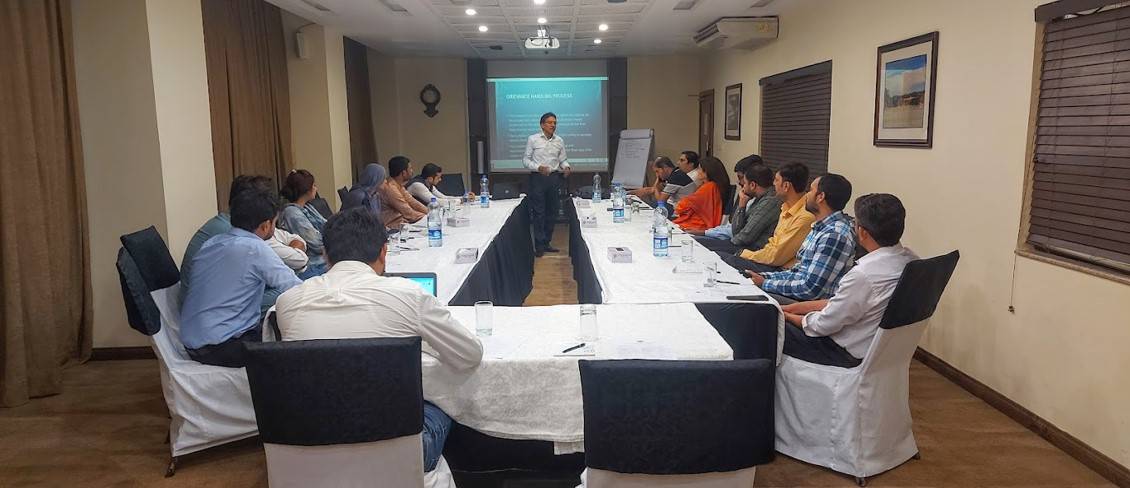
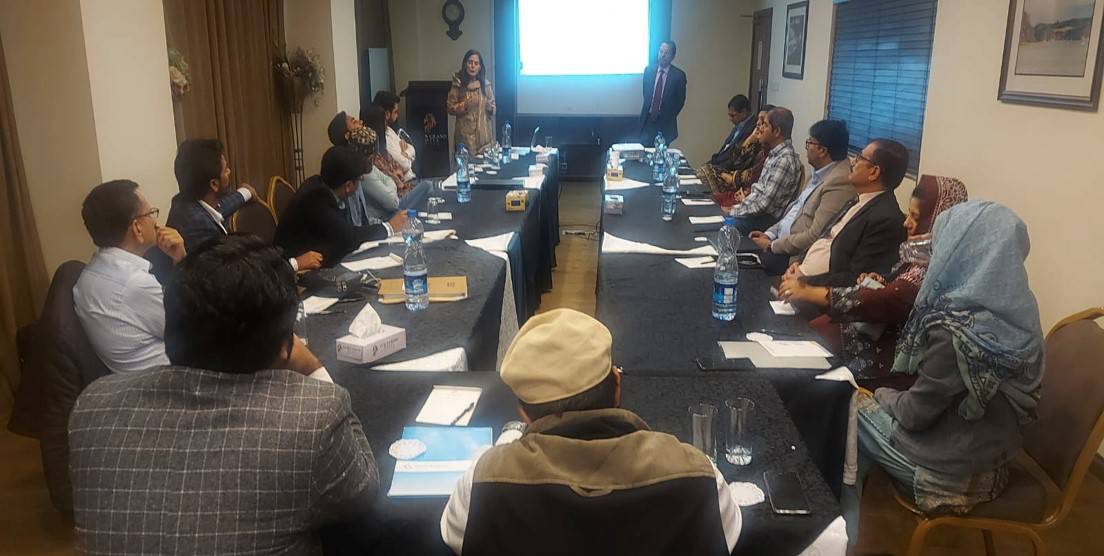
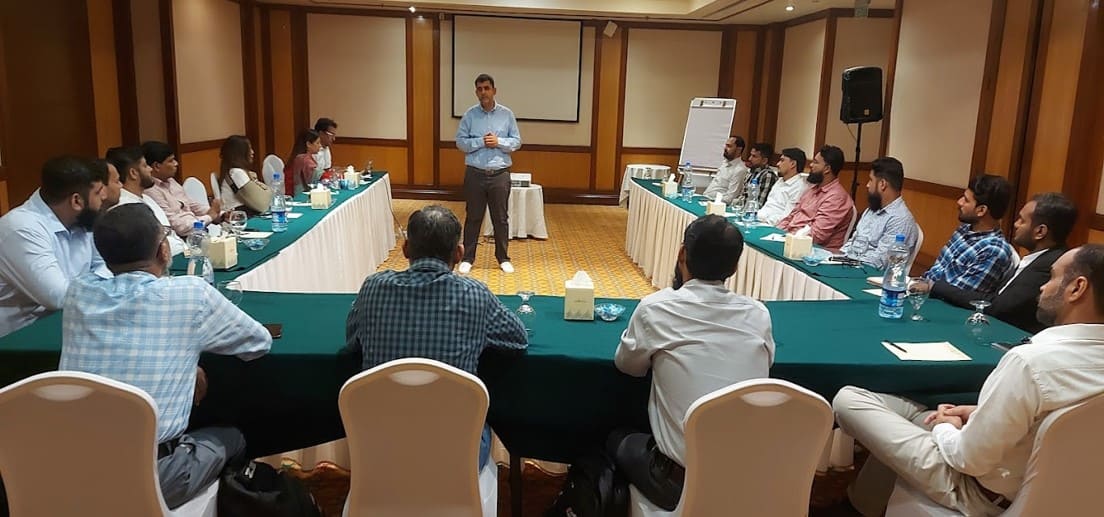
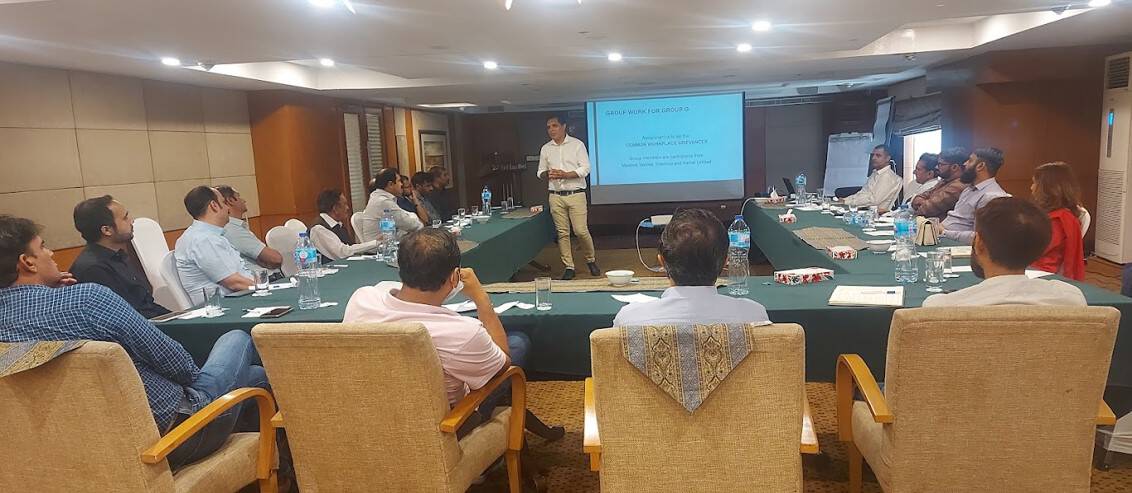
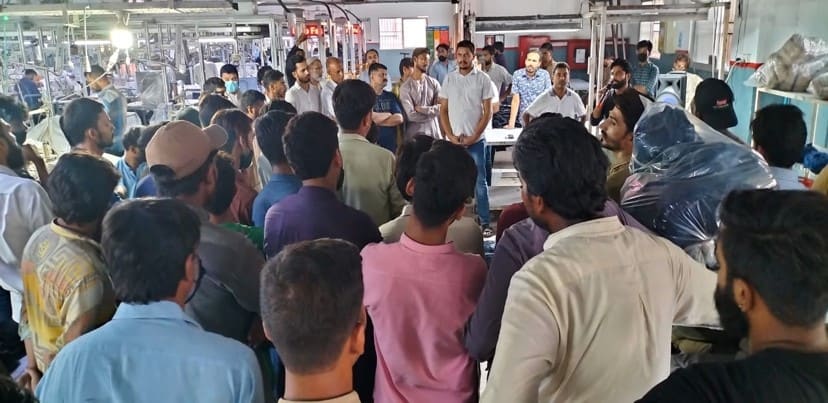
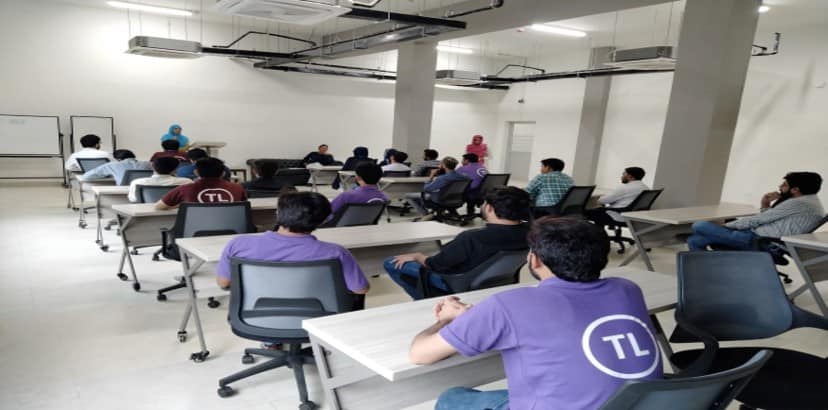
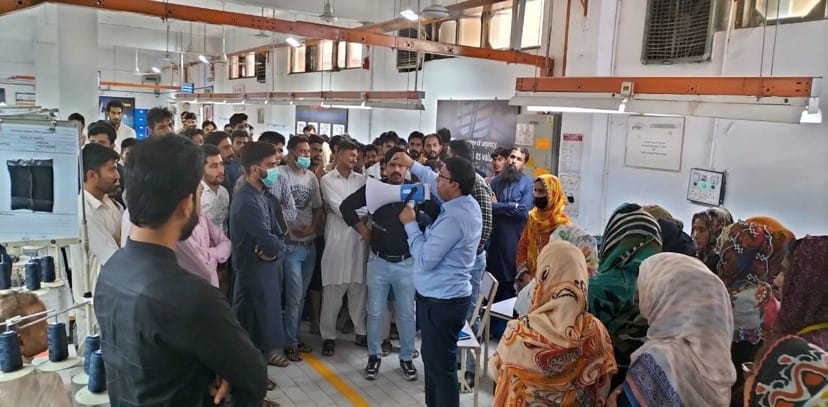
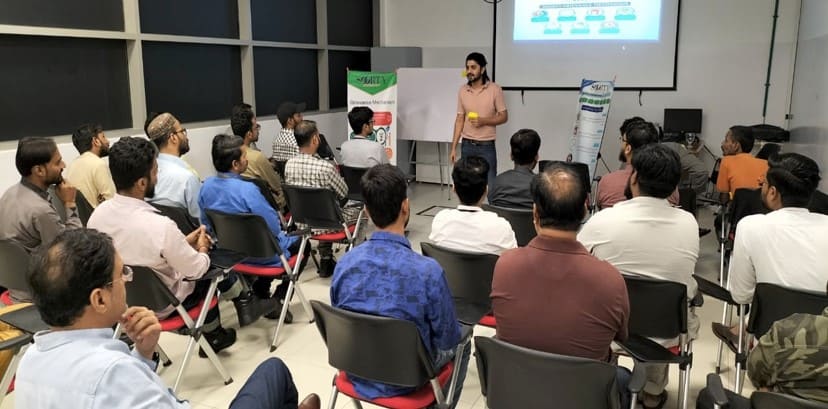
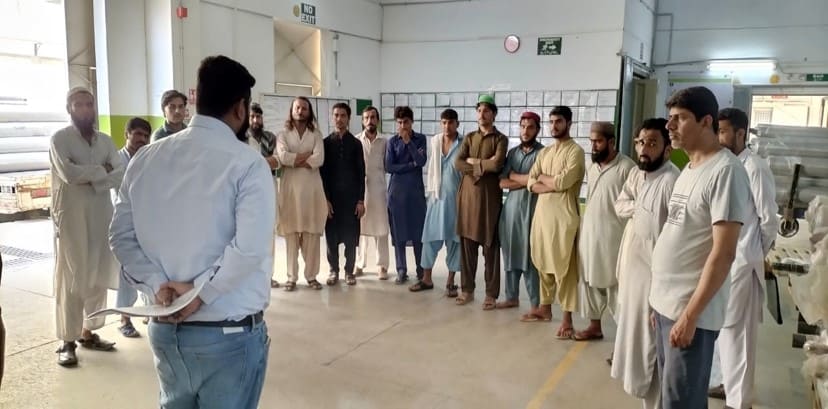
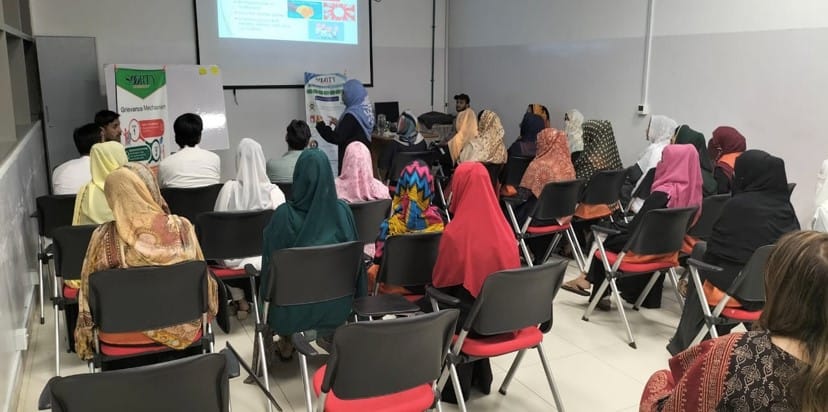
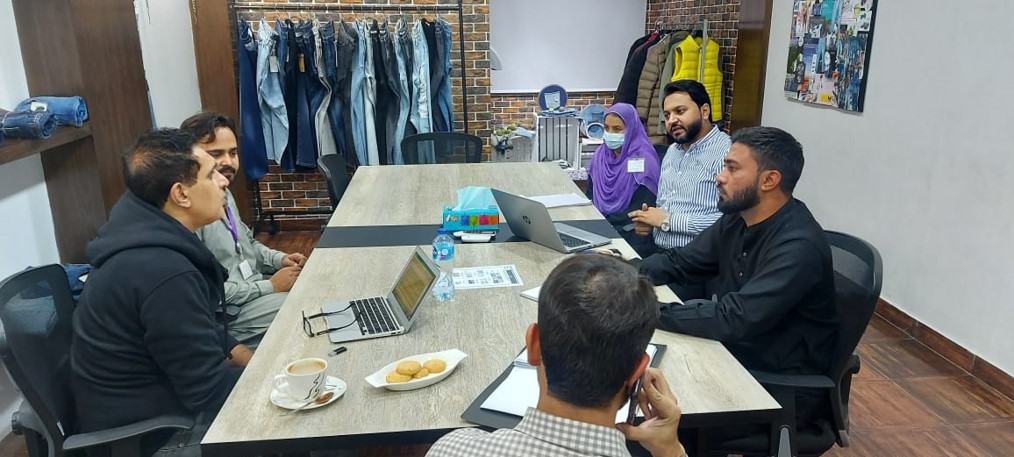
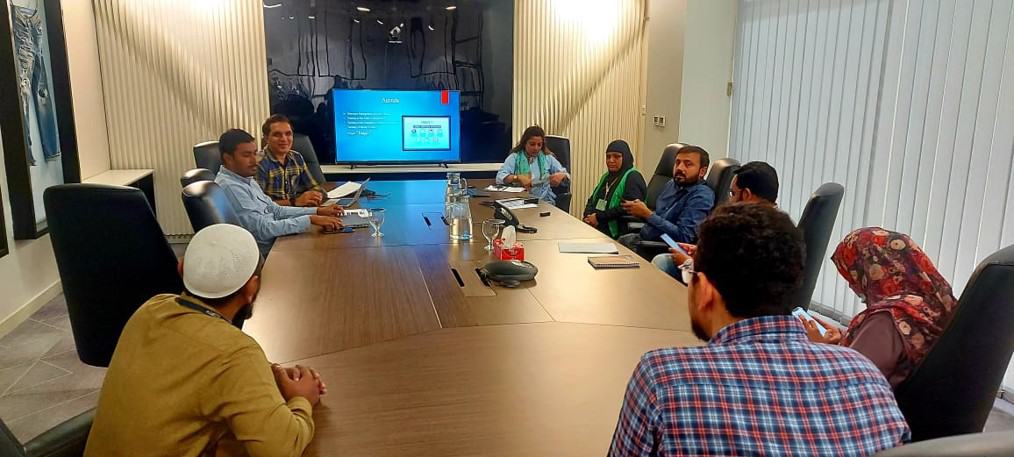
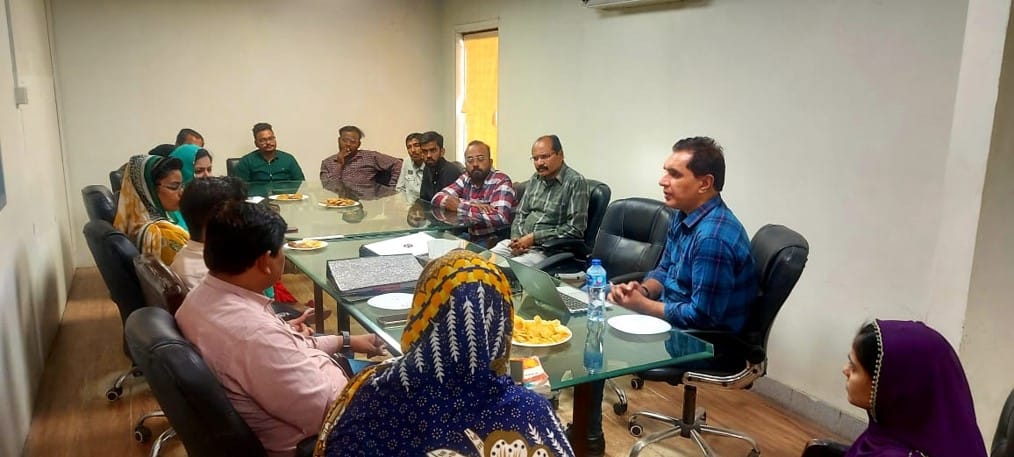
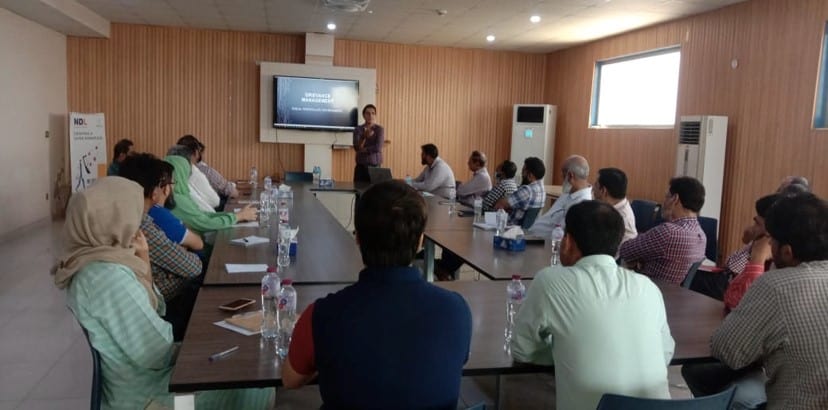
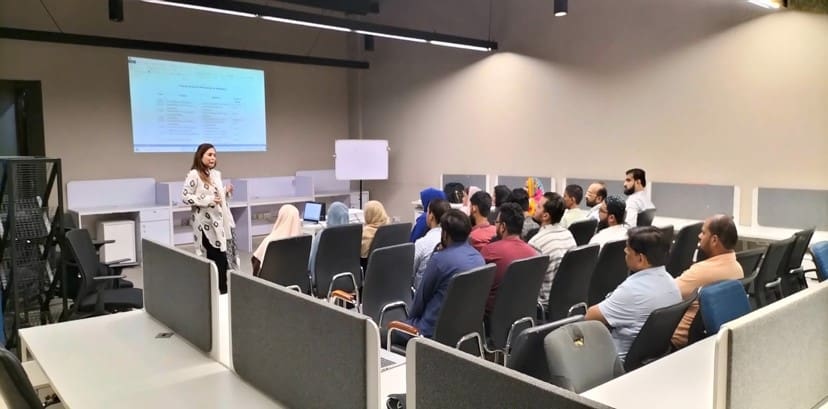
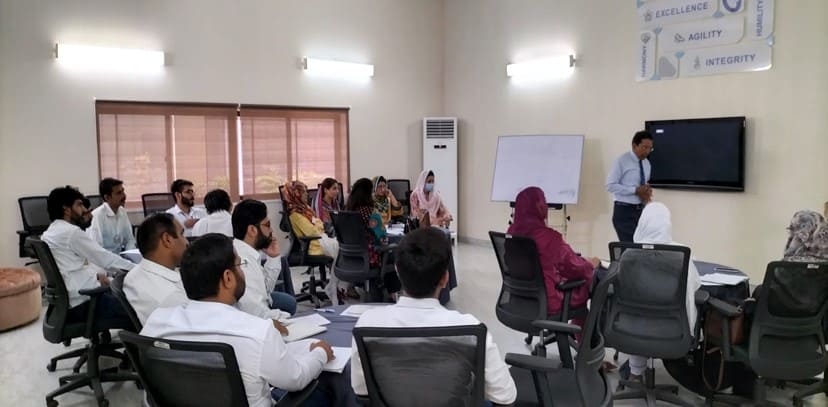
Project participants support the continuation of the project
The local coordinator carried out post assessments in November and December 2022 . The result: In all 16 factories complaints committees were established and members of these committees and the respective procedures were known among the workforce. To round off the project, the local trainer team invited the management of all participating suppliers to several exchange meetings in Punjab and Karachi in order to present their learnings and results and to share some experiences. All participants showed great openness and commitment. Further, an external evaluation was conducted in order to assess the impact of the project intervention. Results show that all participating factories have established grievance committees and all members of those were trained on their roles and responsibilities. Almost all of the workers (more than 90%), that were randomly selected for interviews, confirmed to be very satisfied or satisfied with the newly set up grievance mechanism and some interviewees gave examples of specific changes after the set-up:
“I think and believe that grievance management system is more beneficial for the women workers […]. The impact of the system that I see that women workers pointed their concerns to grievance management committee about less facilities and rest options during break hours and now women in our factory has like separate prayer area designated for women, day care center established for women who have minors, specified women canteen area in the factory and all this happened after the formation of grievance management committee and when concerns of women were highlighted. We can confidently say that grievance management system minimized the inequalities for the women workers.”
“I genuinely found this whole GMP journey full of learning opportunities which are helping us strengthen our internal grievance management system functionality and its effectiveness at ground level. Throughout the process, I have witnessed people's engagement in this well-structured program from kick-off sessions to its implementation program in an unconventional manner. It will certainly boost our confidence and level up our grievance management through the knowledge imparted by the competent and experienced trainers of GIZ and Fairtrade specially Mr. Shakir who was a great lead support across the process.” (Sr Manager System & Compliance, participating supplier)
The project was jointly financed through contributions from GIZ, the five Partnership companies and Fairtrade Germany. In regular meetings, the companies, GIZ and Fairtrade Germany came together to discuss the project progress. While this project phase is now coming to an end, the group already agreed that the positive resonance calls for a continuation of the great work on the ground. “It is great to see that the intervention was relevant for the factories and brought some immediate changes for the workers. Now we call on companies and factories alike to continue the work to improve working conditions through grievance mechanisms and further instruments. We are ready to support through our Fairtrade Textile Programme and Standard”, Dr. Bettina von Reden, Head of International Projects and Partnerships at Fairtrade Germany said.



